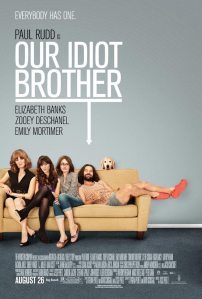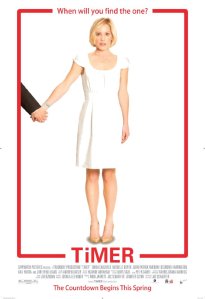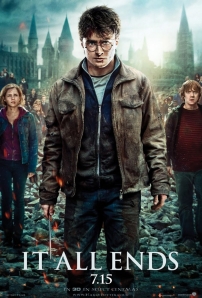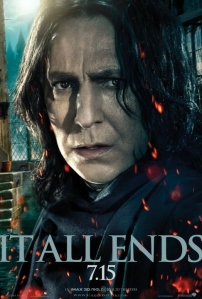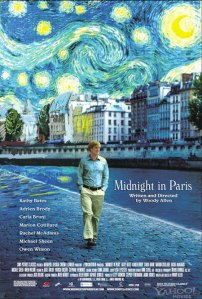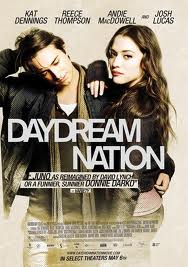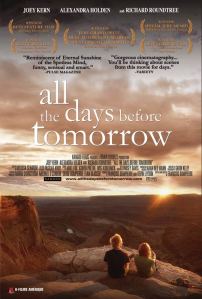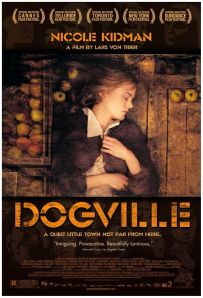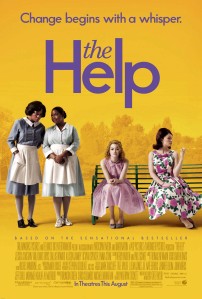 I think The Help (Tate Taylor), is a fantastic movie for all the reasons everyone else has already said. It is a touching portrayal of the lives of maids in 1960s Jackson, Mississippi, and the writer who wants to tell their story. The movie makes it very easy to become emotionally involved with its characters, especially the two maids, Aibileen Clark (Viola Davis) and Minny Jackson (Octavia Spencer), as well as Eugenia Skeeter Phelan (Emma Stone), the Ole Miss graduate who approaches them for her book idea and Celia Foote (Jessica Chastain), the captivating social outcast whose experiences are a testament to how horrible women can be to each other.
I think The Help (Tate Taylor), is a fantastic movie for all the reasons everyone else has already said. It is a touching portrayal of the lives of maids in 1960s Jackson, Mississippi, and the writer who wants to tell their story. The movie makes it very easy to become emotionally involved with its characters, especially the two maids, Aibileen Clark (Viola Davis) and Minny Jackson (Octavia Spencer), as well as Eugenia Skeeter Phelan (Emma Stone), the Ole Miss graduate who approaches them for her book idea and Celia Foote (Jessica Chastain), the captivating social outcast whose experiences are a testament to how horrible women can be to each other.
Since it has been out for almost a month and has received considerable word-of-mouth promotion, I believe it’s safe to assume that the majority of people who are interested in seeing it have done so, and those who have not, know the premise of the film. I’m therefore not going to be redundant and go into plot details and so on, although I could talk about so many different aspects of the movie. Instead, I want to focus on the aforementioned character relatability and why I personally feel like I can identify with Skeeter, because this is what made the movie all the more effective for me. Now don’t get me wrong. I know that she is only one small component of The Help, but like I already said, I’m not going to discuss all the elements that I could talk about here. I’d merely like to focus on my perspective of a single character, in no way giving her importance over the others.
Someone recently told me that people just need to find what they want to do and go out and do it; make it happen, if you will. Figuring out what you want to do is the first step, and you’d be surprised how many people have not even done that. I started thinking about this and came to the realization that this is entirely common sense. How are you supposed to do anything if you don’t even know what it is that you want to do? As for me, my issue lately has not been not knowing what I want to do. That I know quite well. (I’d like to write about, or work in film/entertainment in some capacity, in case you’re wondering. I’m not very picky at this juncture.) It’s more the “going out and making it happen” part that’s given me some mild issues.
This is why I give major kudos to Skeeter in The Help. She goes back home after graduating and what does she do first thing? Gets a job. Now albeit, writing a cleaning column is not the ideal job even if you do want to be a writer. But I love this scene more for how she goes about getting the position, as opposed to the position itself. Way to turn a rejection letter into something positive. I’m not sure many people would even try to do that. Let’s be honest. I know it wouldn’t have crossed my mind. So there is that. Then there’s the fact that Skeeter stands up for herself and what she wants to do, despite lack of understanding from everyone else, including her mother, her “friends” and Stuart Whitworth (Chris Lowell), who was never worth her time anyways.
Most importantly though, she perseveres. She knows what she wants to do, and she does it. This is easier said than done, which makes her achievement all the more impressive. To me, as a fellow job searcher and aspiring writer, anyways. I have received several of the “great potential, but we regret to inform you” e-mails over the past few months, and I’ll admit, multiple times during this time period I have pondered if there was a point of sending out another resume or contacting a potential employer. Characters like that of Stone’s, however, remind me that the effort is worthwhile.
It’s not even just that Skeeter gets a job working at a newspaper. It’s that she wants to be a serious writer, finds a topic that she cares about and turns it into a book. She does so despite initial (and completely understandable) resistance from the maids she wants to interview, impending deadlines from the publishing company, not to mention pressure from her mother to find a man and settle down. Because finding a man worked out so well for her.
It’s actually been a week since I went and watched The Help, but I’m only now writing about it because what I wanted to say about it didn’t hit me until the conversation I mentioned previously. It wasn’t until I thought about it this past Monday that I made a connection between it and this movie. Mind you, not that it was a great epiphany or anything, it’s just that what has always been common sense kind of became clearer. Because, really, what’s holding anyone back from doing what they want to do? How hard can it be to figure out what makes us happy? Sure, it’s not easy to make that happen even once we realize it, especially if it involves looking for a job nowadays.
But the point is persistance, and eventually something will work out. I feel like I have to believe that. As Aibileen told Eugenia, “Go find your life.” Really, we shouldn’t wait for people to tell us that. We should be doing so already. But when they do say something, we should take it as a wake-up call and go for it. Because once we do, it will be worth it no matter what the result.
